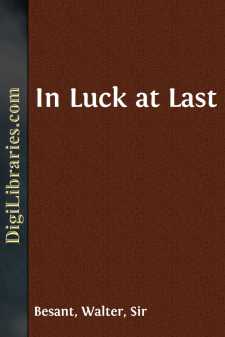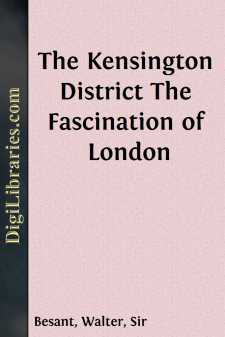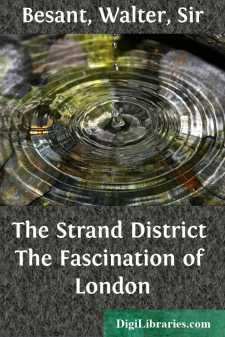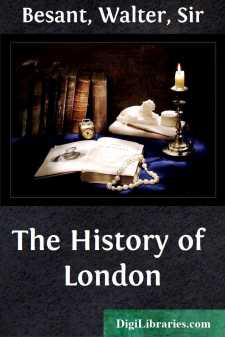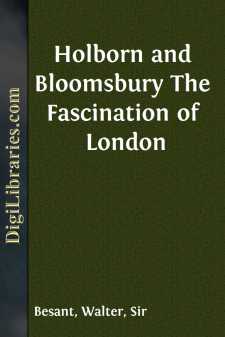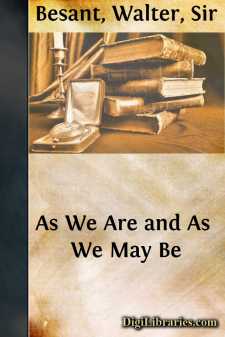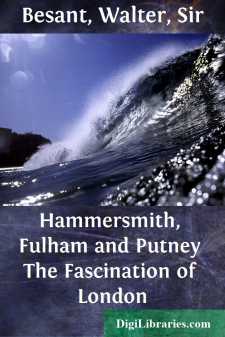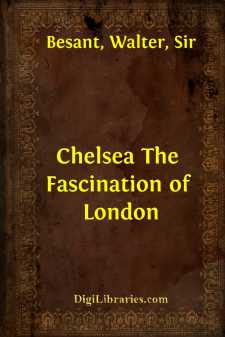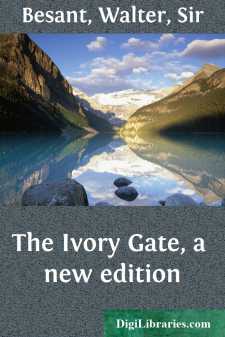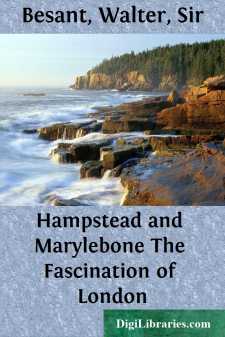Categories
- Antiques & Collectibles 13
- Architecture 36
- Art 48
- Bibles 22
- Biography & Autobiography 813
- Body, Mind & Spirit 142
- Business & Economics 28
- Children's Books 17
- Children's Fiction 14
- Computers 4
- Cooking 94
- Crafts & Hobbies 4
- Drama 346
- Education 46
- Family & Relationships 57
- Fiction 11829
- Games 19
- Gardening 17
- Health & Fitness 34
- History 1377
- House & Home 1
- Humor 147
- Juvenile Fiction 1873
- Juvenile Nonfiction 202
- Language Arts & Disciplines 88
- Law 16
- Literary Collections 686
- Literary Criticism 179
- Mathematics 13
- Medical 41
- Music 40
- Nature 179
- Non-Classifiable 1768
- Performing Arts 7
- Periodicals 1453
- Philosophy 64
- Photography 2
- Poetry 896
- Political Science 203
- Psychology 42
- Reference 154
- Religion 513
- Science 126
- Self-Help 84
- Social Science 81
- Sports & Recreation 34
- Study Aids 3
- Technology & Engineering 59
- Transportation 23
- Travel 463
- True Crime 29
Walter Besant
Walter Besant (1836-1901) was a prolific English novelist and historian known for his vivid depictions of London life and his advocacy for social reform. He co-authored several successful novels with James Rice, such as "The Golden Butterfly," and later achieved solo acclaim with works like "All Sorts and Conditions of Men." Besant was also a founder of the Society of Authors, championing the rights and interests of writers.
Author's Books:
Sort by:
by:
Walter Besant
CHAPTER I. WITHIN THREE WEEKS If everyone were allowed beforehand to choose and select for himself the most pleasant method of performing this earthly pilgrimage, there would be, I have always thought, an immediate run upon that way of getting to the Delectable Mountains which is known as the Craft and Mystery of Second-hand Bookselling. If, further, one were allowed to select and arrange the minor...
more...
by:
Walter Besant
KENSINGTON When people speak of Kensington they generally mean a very small area lying north and south of the High Street; to this some might add South Kensington, the district bordering on the Cromwell and Brompton Roads, and possibly a few would remember to mention West Kensington as a far-away place, where there is an entrance to the Earl's Court Exhibition. But Kensington as a borough is both...
more...
by:
Walter Besant
WEST AND NORTH OF CHARING CROSS Beginning at the extreme westerly limit of St. Martin's-in-the-Fields, on the south side of Hyde Park Corner, we find ourselves in the Green Park. This is a triangular piece of ground, which was formerly called Little or Upper St. James's Park. It has not much history. In 1642 fortifications were erected on Constitution Hill, and at the end of the seventeenth...
more...
by:
Walter Besant
1. THE FOUNDATION OF LONDON. PART I. 'In the year 1108 B.C., Brutus, a descendant of Æneas, who was the son of Venus, came to England with his companions, after the taking of Troy, and founded the City of Troynovant, which is now called London. After a thousand years, during which the City grew and flourished exceedingly, one Lud became its king. He built walls and towers, and, among other...
more...
by:
Walter Besant
PREFATORY NOTE A survey of London, a record of the greatest of all cities, that should preserve her history, her historical and literary associations, her mighty buildings, past and present, a book that should comprise all that Londoners love, all that they ought to know of their heritage from the past—this was the work on which Sir Walter Besant was engaged when he died. As he himself said of it:...
more...
by:
Walter Besant
AS WE ARE AND AS WE MAY BE THE ENDOWMENT OF THE DAUGHTER. Those who begin to consider the subject of the working woman discover presently that there is a vast field of inquiry lying quite within their reach, without any trouble of going into slums or inquiring of sweaters. This is the field occupied by the gentlewoman who works for a livelihood. She is not always, perhaps, gentle in quite the old...
more...
by:
Walter Besant
HAMMERSMITH The parish of Hammersmith is mentioned in Doomsday Book under the name of Hermoderwode, and in ancient deeds of the Exchequer as Hermoderworth. It is called Hamersmith in the Court Rolls of the beginning of Henry VII.'s reign. This is evidently more correct than the present spelling of the name, which is undoubtedly derived from Ham, meaning in Saxon a town or dwelling, and Hythe or...
more...
by:
Walter Besant
PART I The name Chelsea, according to Faulkner and Lysons, only began to be used in the early part of the eighteenth century. During the sixteenth and seventeenth centuries the place was known as Chelsey, and before that time as Chelceth or Chelchith. The very earliest record is in a charter of King Edward the Confessor, where it is spelt Cealchyth. In Doomsday Book it is noted as Cercehede and...
more...
by:
Walter Besant
WHO IS EDMUND GRAY? Mr. Edward Dering, in a rare interval of work, occupied himself with looking into his bank book. Those humble persons whom the City, estimating the moral and spiritual worth of a man by his income, calls 'small,' frequently and anxiously examine their bank books, add up the columns, and check the entries. Mr. Dering, who was not a small man, but a big man, or rather, from...
more...
by:
Walter Besant
HAMPSTEAD The name of this borough is clearly derived from "ham," or "hame," a home; and "steede," a place, and has consequently the same meaning as homestead. Park, in a note in his book on Hampstead, says that the "p" is a modern interpolation, scarcely found before the seventeenth century, and not in general use until the eighteenth. HISTORY Lysons says that the Manor...
more...


